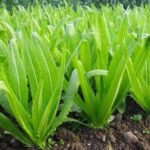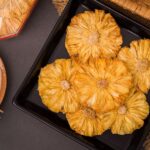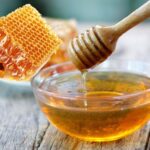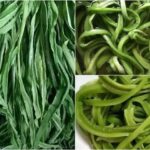## Turmeric and Honey: A Powerful Combination with Some Contraindications
The combination of turmeric and honey has long been trusted and used by many for its perceived health benefits. However, not everyone is aware of the contraindications associated with this mixture. Improper use of this product can have adverse effects on the body.
The Health Benefits of Turmeric and Honey
Turmeric and honey are natural ingredients often used to treat stomach-related issues such as gastritis and gastroduodenitis. They help alleviate uncomfortable symptoms like indigestion, bloating, and abdominal pain. Additionally, the mixture exhibits antibacterial and anti-inflammatory properties. Curcumin, a component of turmeric, is a potent antioxidant and anti-inflammatory agent, while honey also possesses natural antibacterial properties. Together, they work to inhibit the growth of disease-causing bacteria and combat inflammation in the body.
Furthermore, the combination of turmeric and honey offers additional benefits, including boosting immunity. When it comes to skincare, these two ingredients slow down the aging process, resulting in smoother and brighter skin.
For individuals suffering from joint inflammation, cardiovascular diseases, coughs, sore throats, and mild colds, the mixture can provide relief by soothing the throat, enhancing immunity, and reducing inflammation.
Those who lead stressful lives, experience fatigue, or suffer from lack of sleep can also benefit from this combination. Turmeric and honey help restore and strengthen the body, acting as a mild sedative.
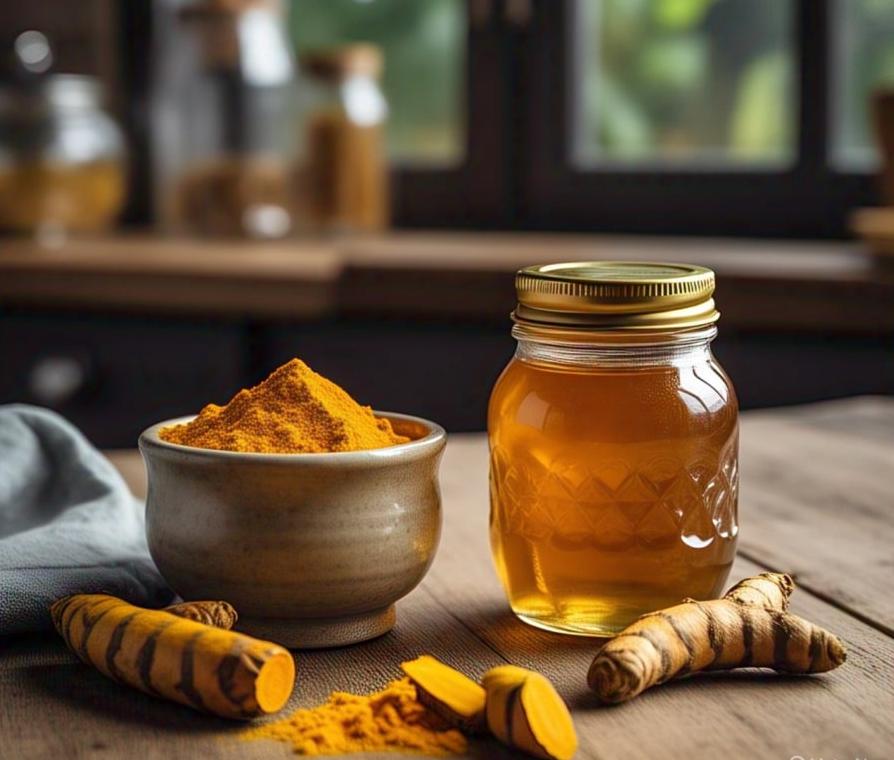
Who Should Refrain from Consuming Turmeric and Honey
According to an article in the Health & Life newspaper, Dr. Nguyen Huy Hoang shared some cases where the consumption of turmeric and honey is not recommended:
- Individuals with severe gastric ulcers and bleeding
While turmeric and honey are often used to alleviate stomach discomfort, in cases of severe gastric ulcers with bleeding, this combination is not suitable. Turmeric and honey do not possess blood-coagulating properties, and using them without medical supervision may delay proper treatment.
Additionally, this mixture is more appropriate for individuals with gastroduodenitis caused by spleen and stomach cold. On the other hand, those with gastroduodenitis due to heat should refrain from long-term use. Prolonged consumption in this case may increase heat in the stomach region, exacerbating the condition.
It is advisable to consult a doctor before using turmeric and honey for gastroduodenitis.
- Individuals with gallstones or bile duct obstruction
Those suffering from gallstones or bile duct obstruction should avoid consuming turmeric and honey. These substances can stimulate bile secretion, causing pain and bile duct spasms, and potentially worsening stone-related issues.
- Individuals with blood disorders
The combination of turmeric and honey is not recommended for individuals with blood disorders or those taking anticoagulant medications. This is because turmeric has blood-activating and stasis-resolving properties, which may increase the risk of bleeding and delay blood clotting.
- Individuals preparing for surgery and women during menstruation
Due to its blood-activating and stasis-resolving effects, it is best for individuals preparing for surgery, menstruating women, and those with menorrhagia to refrain from consuming turmeric and honey to avoid any potential health complications.
- Pregnant women and infants under one year old
During pregnancy, especially in the first trimester, prolonged consumption of turmeric and honey is not advised. Similarly, infants under one year of age should not be given this mixture.
- Individuals taking prescription medications
If you are taking prescription medications, it is best to avoid using turmeric and honey as they may interact with the drugs’ components, either enhancing or reducing their effects, and potentially interfering with the treatment process.
While turmeric and honey offer a range of health benefits, it is important to recognize that they are not suitable for everyone. The aforementioned cases highlight situations where consumption should be avoided. Stay informed and consult a healthcare professional if you have any concerns or questions regarding your specific circumstances.
3 Ways Chamomile Tea Can Help You Sleep Like a Baby
Introducing the ultimate remedy for sleepless nights – a cup of chamomile tea. Its delicate fragrance and natural sedative properties make it the perfect bedtime companion, helping you drift off into a peaceful slumber. With its calming effects, this tea is a natural solution for those struggling to find a good night’s rest.
The Ultimate ‘Natural Cleanse’: Two Fruits from Vietnam with Minimal Pesticides, Delicious Taste, and Nutritional Benefits Worth Discovering
Uncover the two ‘treasures’ grown in Vietnamese gardens, renowned for their cultivation process that almost eliminates the need for pesticides. Not only do they boast delicious, naturally sweet flavors, but they are also packed with essential nutrients, offering a bountiful supply of goodness for your body.

























